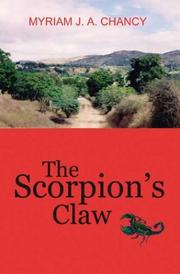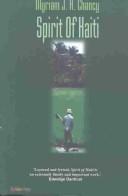| Listing 1 - 7 of 7 |
Sort by
|
Book
ISBN: 9781554586127 9781554584291 1554584299 9781554582730 1554582733 9781554584307 1554584302 9781554584284 1554584280 9786613863065 128355061X Year: 2012 Publisher: Waterloo, Ont. Wilfrid Laurier University Press
Abstract | Keywords | Export | Availability | Bookmark
 Loading...
Loading...Choose an application
- Reference Manager
- EndNote
- RefWorks (Direct export to RefWorks)
Sovereignty. Sugar. Revolution. These are the three axes this book uses to link the works of contemporary women artists from Haiti--a country excluded in contemporary Latin American and Caribbean literary studies--the Dominican Republic, and Cuba. In From Sugar to Revolution: Women's Visions of Haiti, Cuba, and the Dominican Republic, Myriam Chancy aims to show that Haiti's exclusion is grounded in its historical role as a site of ontological defiance. Her premise is that writers Edwidge Danticat, Julia Alvarez, Zoé Valdés, Loida Maritza Pérez, Marilyn Bobes, Achy Obejas, Nancy Morejón, and visual artist Maria Magdalena Campos-Pons attempt to defy fears of "otherness" by assuming the role of "archaeologists of amnesia." They seek to elucidate women's variegated lives within the confining walls of their national identifications--identifications wholly defined as male. They reach beyond the confining limits of national borders to discuss gender, race, sexuality, and class in ways that render possible the linking of all three nations. Nations such as Haiti, the Dominican Republic, and Cuba are still locked in battles over self-determination, but, as Chancy demonstrates, women's gendered revisionings may open doors to less exclusionary imaginings of social and political realities for Caribbean people in general.
Spanish-American literature --- Cuba --- Dominican Republic --- Haiti --- Cuban Literature --- Haitian Literature --- Women And Literature --- Dominican Literature --- Women Artists --- Women --- Literary Criticism --- Art --- Social Science

ISBN: 1900715910 Year: 2005 Publisher: Leeds, England Peepal Tree Press
Abstract | Keywords | Export | Availability | Bookmark
 Loading...
Loading...Choose an application
- Reference Manager
- EndNote
- RefWorks (Direct export to RefWorks)
Book
ISBN: 9781845231224 Year: 2010 Publisher: Leeds Peepal Tree
Abstract | Keywords | Export | Availability | Bookmark
 Loading...
Loading...Choose an application
- Reference Manager
- EndNote
- RefWorks (Direct export to RefWorks)

ISBN: 9781900715911 Year: 2011 Publisher: Leeds Peepal Tree
Abstract | Keywords | Export | Availability | Bookmark
 Loading...
Loading...Choose an application
- Reference Manager
- EndNote
- RefWorks (Direct export to RefWorks)

ISBN: 190229419X Year: 2003 Publisher: London Mango
Abstract | Keywords | Export | Availability | Bookmark
 Loading...
Loading...Choose an application
- Reference Manager
- EndNote
- RefWorks (Direct export to RefWorks)
Book
ISBN: 0252051904 9780252051906 9780252043048 9780252084911 Year: 2020 Publisher: Urbana
Abstract | Keywords | Export | Availability | Bookmark
 Loading...
Loading...Choose an application
- Reference Manager
- EndNote
- RefWorks (Direct export to RefWorks)
"In this book of textual and cultural studies, Myriam J. A. Chancy focuses on the tropes of transnationalism, testimony and transmission within African diasporic texts. Not a work simply concerned with "racial rehabilitation" or "inclusion" within the dominant discourses of North America and Western Europe, it intends to serve as an intervention in race, Caribbean, African diasporic, and cultural studies by providing a radically new model for a culturally imbedded reading practice of contemporary works by African and African diasporic artists. Its purpose is to reveal the contributions to ontology that such artists deploy. In developing this approach, Chancy revisits the concept of "interpretive communities" from a distinctively African diasporic point of view. She uses concepts derived from contemporary philosophical approaches to subjectivity that revise-and mostly discard-Hegelian principles in order to assert less Eurocentric approaches. Building from these, she develops her neologism autochthonomy (aw-tok-ton-nuh-mee), which describes a practice of subjectivity and agency employed by African diasporic artists. Those artists chosen for this study bring together the experiences, movements, and knowledge of populations of African descent both on the continent and dispersed throughout Europe and the Americans in order to emphasize transnational interactions between African cultural producers and sites."--
African diaspora in art. --- African diaspora in literature. --- Black people --- African diaspora --- History. --- Africa --- Civilization.
Book

ISBN: 1617751936 1617752045 Year: 2013 Publisher: New York Akashic Books
Abstract | Keywords | Export | Availability | Bookmark
 Loading...
Loading...Choose an application
- Reference Manager
- EndNote
- RefWorks (Direct export to RefWorks)
| Listing 1 - 7 of 7 |
Sort by
|

 Search
Search Feedback
Feedback About UniCat
About UniCat  Help
Help News
News